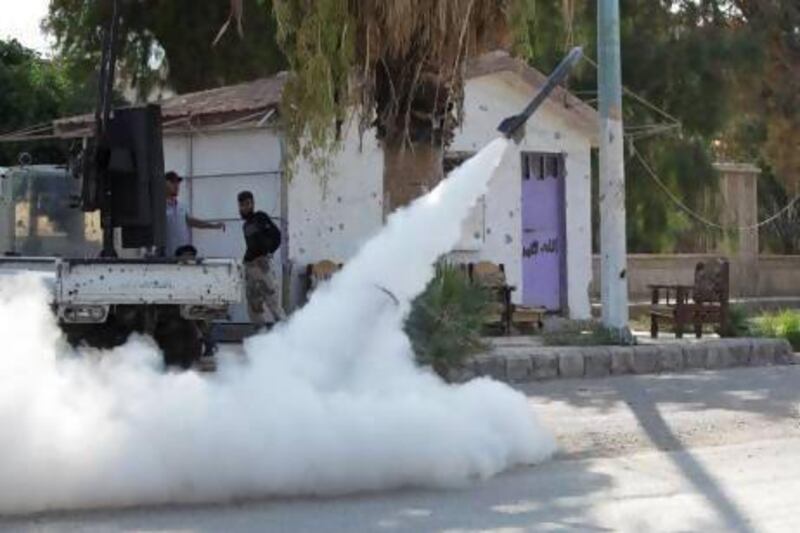AMMAN/DOHA // Bashar Al Assad's former defence minister has reached Istanbul after a defection that betrays cracks in the president's support among his own Alawite sect, opposition and diplomatic sources said yesterday.
Dismissing a cursory Syrian state television denial of the first reports that General Ali Habib had been spirited across the Turkish frontier this week, opposition figures said he was likely to keep a low profile after evading house arrest and reaching Turkey with the aid of Western agents.
One prominent opposition figure also spoke of speculation that Gen Habib, who is in his 70s and apparently broke with Mr Al Assad after a crackdown on protesters in 2011, might be lined up by US and Russian officials for a role in transitional arrangements to negotiate an end to the civil war.
"My information, based on a trusted Western source, is that he is in Istanbul," veteran dissident Kamal Al Labwani, now based in Paris, said yesterday. "Habib exited with Western intelligence involvement, so do not expect public statements by security operatives on his whereabouts."
A source in one of the Gulf Arab states that is backing the revolt against Mr Al Assad said Gen Habib had crossed Turkey's southern border after dark on Tuesday and had reached Istanbul, a base for the Western-backed Syrian National Coalition.
A Western diplomatic source said he had confirmation that Gen Habib had defected and was in Turkey. He dismissed a brief report on Syrian state television on Wednesday which said he was still at his home.
The Turkish government, which hosts Syrian military officers who have defected, has not confirmed the general's presence. He has not been seen in public this week.
Alawites, who practice an offshoot of Shiite Islam, make up about an eighth of Syria's 22 million population. Many rose to prominence after Mr Al Assad's father Hafez Al Assad seized power in a coup in 1970. Gen Habib, born in 1939, was once army chief of staff and served as defence minister in 2009-11.
Some opposition sources say he disagreed with the use of force against protesters at the start of the revolt, which began in March 2011, and so he was dismissed as minister that August. Apparently unwilling to publicise the rift, Mr Al Assad kept Gen Habib quietly under guard while having him appear in public at times to make a show of loyalty, those sources said.
Gen Habib himself was quoted as saying that he had stepped down from the defence ministry on health grounds.
Numerous senior military and political figures have deserted Assad since 2011, but most have been from the country's Sunni Muslim majority, while members of Mr Al Assad's minority Alawite sect have largely remained loyal to his government.
Elsewhere yesterday, Syrian government troops battled Al Qaeda-linked rebels over a regime-held Christian village in western Syria for the second day.
Residents of Maaloula said the militants entered the village late on Wednesday. Rami Abdul-Rahman, the director of the Britain-based Observatory for Human Rights, said the fighters included members of the of Al Qaeda affiliated Jabhat Al Nusra group. The rebels launched the assault on the ancient Christian village - which is on a Unesco list of tentative world heritage sites - on Wednesday after an Al Nusra fighter blew himself up at a regime checkpoint at the entrance to the mountain village.
Also yesterday, a car bomb exploded outside a research centre belonging to the industry ministry in the area of Soumariya near Damascus, killing four people and wounding several others, a government official said.
In the northern province of Aleppo, a Syrian surgeon working for an international aid group that supports doctors in war zones was killed. Médecins Sans Frontières said in a statement that the 28-year-old surgeon, Muhammad Abyad, was killed in an attack.
The UN says the Syrian conflict has killed more than 100,000 people, with nearly 7 million people uprooted from their homes, according to the UN.
* With additional reporting by Associated Press





